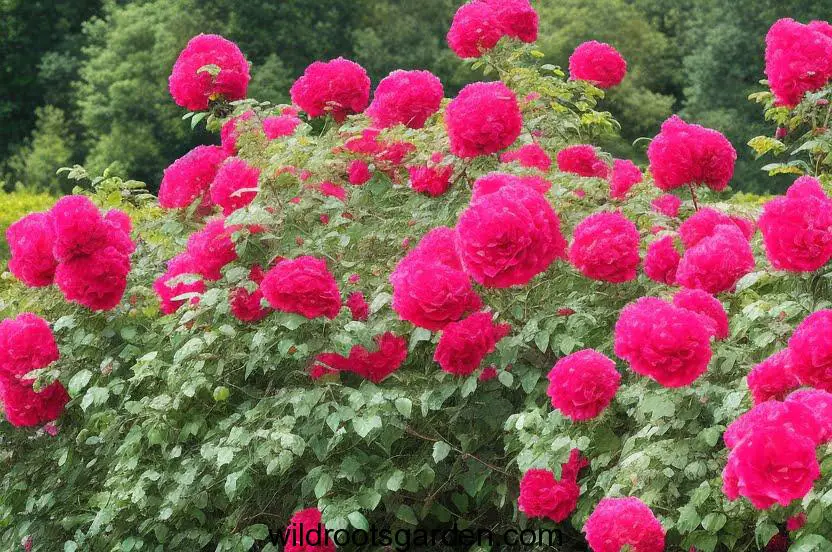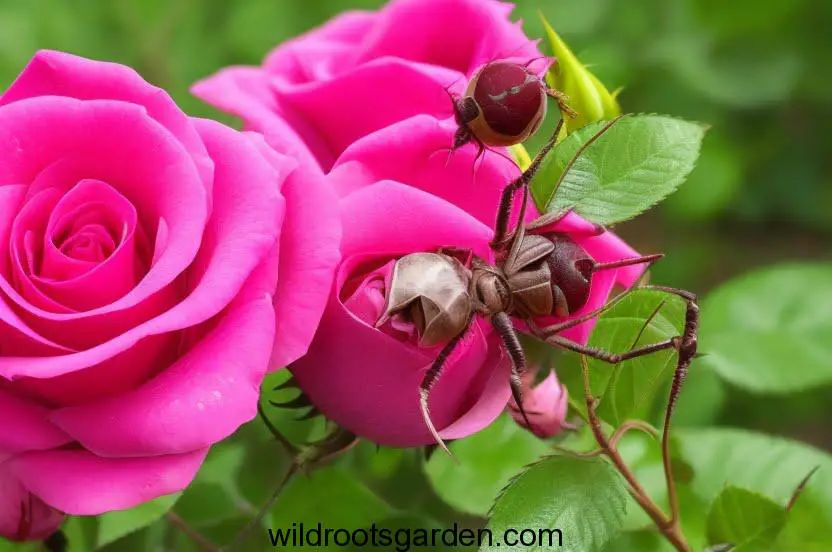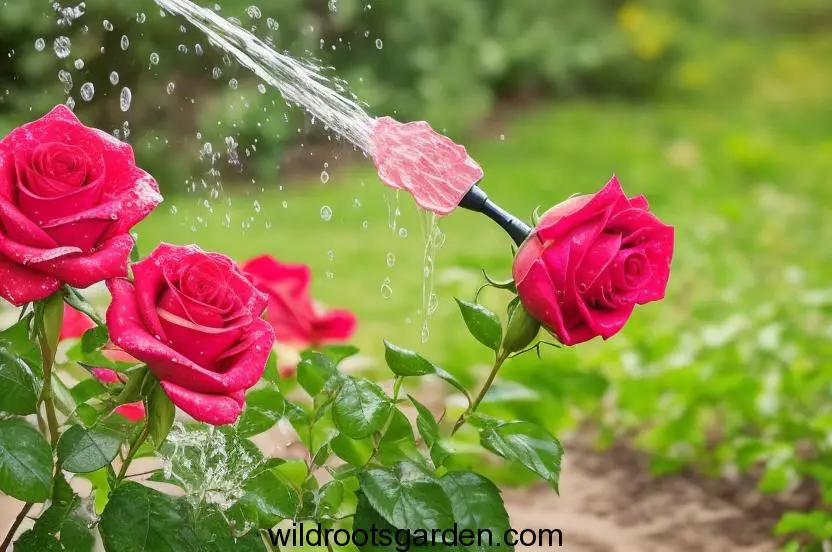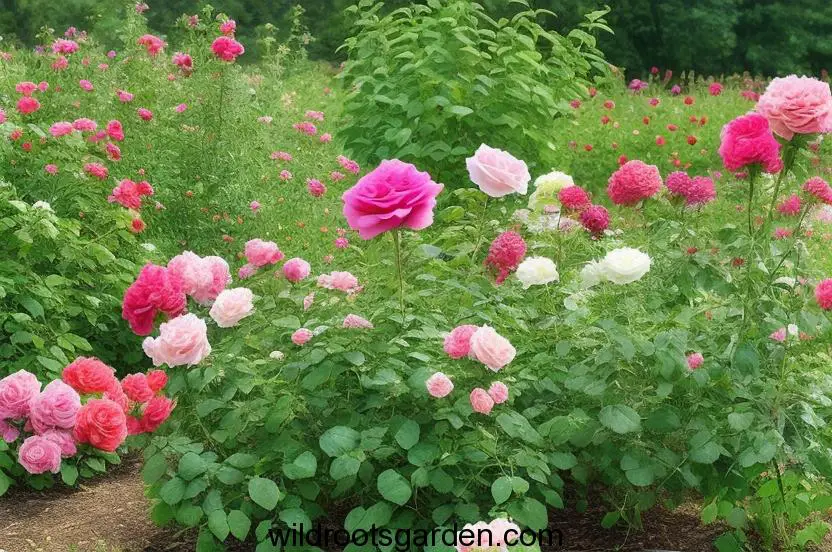Why Are My Rose Bush Stems Turning Brown? Concerned about your rose bush? Learn why rose bush stems may be turning brown and how to address the issue. Our expert gardening tips will help you identify common causes of browning stems, such as fungal diseases, pests, or improper watering. Discover effective solutions to revive your rose bush’s health and beauty. From preventive measures to targeted treatments, we’ve got you covered. Don’t let brown stems hinder your garden’s allure. Explore our comprehensive guide to nurturing vibrant and thriving roses. Get expert advice and regain your rose bush’s vitality. Unlock the secrets to stunning, blooming roses today!”
JUMP TO TOPIC
- 1 Understanding Rose Bushes
- 2 Common Reasons for Brown Stems
- 3 Proper Watering Techniques
- 4 Preventing Pests and Diseases
- 5 Protecting from Sunburn
- 6 Winter Care for Rose Bushes
- 7 Pruning and Maintenance Tips
- 8 Enhancing Soil Health
- 9 Choosing the Right Location for Roses
- 10 Companion Planting for Roses
- 11 Fertilizing Your Rose Bushes
- 12 Propagation Methods
- 13 Frequently Asked Questions (FAQs)
Understanding Rose Bushes

Before delving into the reasons for brown stems, it’s essential to understand the basics of rose bushes. Roses belong to the genus Rosa and are perennial flowering plants. They come in various types, including hybrid tea roses, floribunda roses, and climbing roses, each with unique characteristics and care requirements.
Common Reasons for Brown Stems
Lack of Water
One of the most common reasons for brown stems on rose bushes is inadequate water supply. Roses need consistent and sufficient watering, especially during dry and hot periods. Insufficient water can lead to water stress, causing the stems to turn brown and dry out.
Pests and Diseases

Pests and diseases can also take a toll on the health of your rose bushes, leading to browning stems. Common culprits include aphids, spider mites, powdery mildew, and black spot disease. These issues weaken the plant, affecting its overall vitality.
Sunburn
Believe it or not, rose bushes can get sunburned too. When exposed to intense sunlight for extended periods, the stems may develop brown patches. This is more likely to happen during scorching summer months.
Cold Weather
In colder climates, rose bushes are susceptible to damage from frost and freezing temperatures. Brown stems can be a sign of cold injury, where the plant’s tissues have been harmed by the cold.
Proper Watering Techniques

To prevent brown stems due to water stress, it’s crucial to adopt proper watering techniques. Water your rose bushes deeply and consistently, making sure the soil is well-draining. Consider mulching around the base of the plants to retain moisture and regulate soil temperature.
Preventing Pests and Diseases
Regular inspection of your rose bushes is essential to catch any pest or disease issues early on. Introduce beneficial insects, like ladybugs, to control aphids and other pests naturally. Use appropriate fungicides to prevent and treat fungal diseases like powdery mildew.
Protecting from Sunburn
To shield your rose bushes from sunburn, consider providing some shade during the hottest part of the day, especially in peak summer months. This can be achieved by planting companion plants or using shade cloth strategically.
Winter Care for Rose Bushes

During winter, rose bushes require extra care. Consider covering them with burlap or providing a layer of mulch around the base to insulate the roots from freezing temperatures. Prune the bushes in late winter to remove dead or weak stems.
Pruning and Maintenance Tips
Regular pruning is essential for the health and appearance of your rose bushes. Prune dead or brown stems to promote new growth and enhance air circulation within the plant. Remove any crossing branches to prevent rubbing and damage.
Enhancing Soil Health
Healthy soil is vital for the well-being of your rose bushes. Amend the soil with organic matter regularly to improve its fertility and structure. Ensure the pH level is suitable for roses, ideally around 6.0 to 6.5.
Choosing the Right Location for Roses
Selecting an appropriate planting location is crucial for the success of your rose bushes. Choose a spot with at least 6 hours of sunlight per day and good air circulation. Avoid areas with standing water or dense shade.
Companion Planting for Roses

Companion planting can benefit rose bushes by attracting beneficial insects, repelling pests, and providing natural shade. Consider planting lavender, marigold, or chives near your roses.
Fertilizing Your Rose Bushes
Proper fertilization will promote healthy growth and vibrant blooms. Use a balanced fertilizer specifically formulated for roses. Apply the fertilizer in spring and early summer, following the manufacturer’s instructions.
Propagation Methods
If you wish to expand your rose garden, learning propagation techniques can be rewarding. Roses can be propagated through cuttings, grafting, or layering. Each method has its unique benefits and challenges.
Frequently Asked Questions (FAQs)
FAQ 1: Can I save my rose bush if the stems have turned brown?
Yes, you can try to save your rose bush depending on the underlying cause of the browning stems. Identifying the issue early and taking appropriate actions, such as adjusting watering, treating pests or diseases, or providing shade, can improve the plant’s chances of recovery.
FAQ 2: What is the ideal watering schedule for rose bushes?
Water your rose bushes deeply at least once a week, or more often during hot and dry weather. The goal is to keep the soil consistently moist but not waterlogged.
FAQ 3: How can I protect my rose bushes from pests and diseases?
Regularly inspect your rose bushes for signs of pests or diseases. Use organic pest control methods whenever possible and consider applying fungicides preventively.
FAQ 4: Do rose bushes require a lot of sunlight?
Yes, rose bushes thrive in full sunlight. They need at least 6 hours of direct sunlight per day to grow and bloom optimally.
FAQ 5: Should I cover my rose bushes in winter?
In colder climates, it’s beneficial to provide some protection to your rose bushes during winter. You can cover them with burlap or add a layer of mulch around the base to insulate the roots from freezing temperatures.
In conclusion, The beauty of rose bushes is unmatched, and taking care of them is a rewarding experience for any gardener. By understanding the common reasons for brown stems and implementing proper care techniques, you can ensure your rose bushes stay healthy, vibrant, and a source of joy in your garden. Remember to water consistently, protect from pests and diseases, provide shade in scorching weather, and offer winter care when needed. With the right approach and attention

